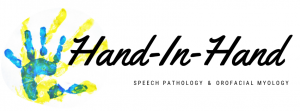In this short series of articles, I’ll show you some of the signs of breathing problems that I look for in children. I’m not a respiratory physician, but a Speech Pathologist who has trained in Orofacial Myology and Integrative Breathing Therapy. I am concerned about breathing because of its impact on speech, voice, feeding, cognitive function and behaviour. I am finding that many parents and even medical professionals, are not looking for simple signs of breathing problems. However, a growing number of dentists are taking an interest in this topic, due to the impact of mouth breathing on the teeth.
Mouth breathing is not a normal part of development and can lead to a host of problems. Did you know that mouth breathing can cause…?
– Small jaws and crowded teeth
– Development of a long, narrow face
– Tooth decay and gum disease.
Mouth breathing’s ugly step sister is airway obstruction, which is also associated with breathing problems during sleep (eg. obstructive sleep apnoea). Children with these problems can also experience difficulties with attention, learning and behaviour. Speech problems may include difficulties with certain sounds due to malocclusion (eg. overjet) and the development of a low, forward tongue posture. Speech may sound hyponasal. Children with enlarged tonsils may be fussy eaters.
Children with serious breathing problems may experience hypoxia, which may be life-threatening.
Having an open mouth is often a sign of problems in the upper airway. Allergies and enlarged adenoid/tonsils are common causes of problems with nose-breathing. Many children who have had their tonsils/adenoid removed continue to mouth-breathe even after surgery.
The easiest way to spot mouth breathing is an open mouth. Notice if your child’s mouth is often open, including when they are asleep. Children who have their lips closed during the day may sleep with their mouth open. Children who mouth-breathe at night may have evidence of drooling, such as white marks on their cheek or pillow, or wet patches on their pillow.
Bear in mind that it is normal to breathe through your mouth if your nose is blocked due to a cold.
Children who breathe through their mouth may need to see an ENT (Ear Nose and Throat) specialist. In children who have adequate upper airway structures, mouth breathing can be corrected. I have been trained in Integrative Breathing Therapy by Dr Rosalba Courtney, who has been helping children to re-learn nose-breathing for about 30 years.
I encourage all parents to look at their children for this simple sign of breathing problems: an open mouth, lips apart. It may save your child a lot of problems in the long-term, as it is hard to turn back the clock when it comes to facial growth and learning.
For More Information:
Dr Rosalba Courtney on Mouth Breathing








